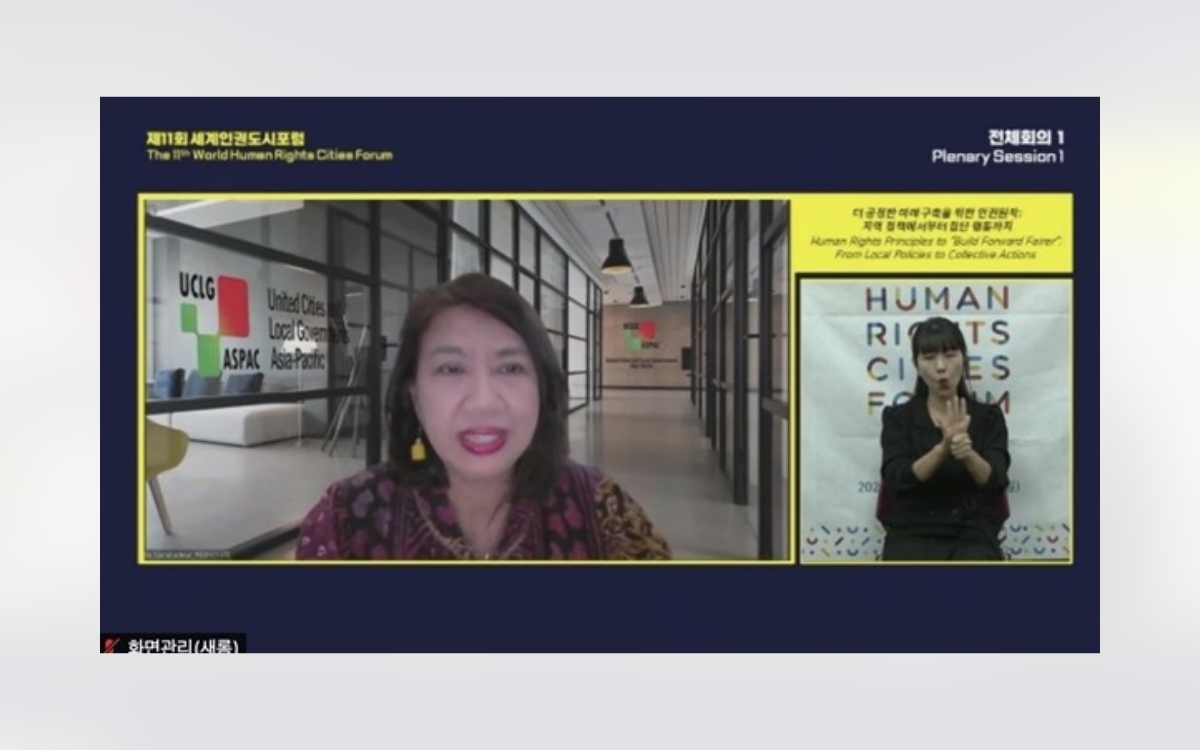9 October 2021 | UCLG ASPAC collaborative programme with The Raoul Wallenberg Institute of Human Rights and Humanitarian Law on Human Rights Cities (RWI) and the city of Gwangju, the Blended Learning Course (BLC) entered its third phase. This year, in conjunction with the World Human Rights City Forum 2021, the 3rd BLC was organised under the theme of Blended Learning Course for Local Governments: Localising Human Rights and SDGs for Inclusive Recovery and Resilience, targeting local governments in the Asia-Pacific region.
This third phase marked the final year of collaboration with RWI and Gwangju City. On this occasion, Secretary General Dr. Bernadia Irawati Tjandradewi extended her appreciation to RWI and Gwangju City for an excellent collaboration since 2020. She also extended her appreciation to participants who had completed the course and prepared the projects. The projects are aimed at leveraging the SDGs localisation towards more inclusive recovery for urban resilience based on the human rights approach.
Secretary General also highlighted the achievement of local governments who had been selected as the best projects as presented by Makati (Makati Disaster Risk Reduction and Management Plan under Human Rights Lens), Calamba (Inclusion of Persons with Disability using Rights-Based Approaches for Enhanced Disaster Risk Reduction and Management Plan of Calamba City), Samal (Women’s Work Burden: An Exploratory Study in Balet, Island Garden City of Samal), Malabon (Revisiting the City of Malabon COVID-19 Rehabilitation and Recovery Programme (using the Human Rights perspective)), and Quezon (Development of SDGs Voluntary Local Review tool for Philippine local governments).
The important role of cities and local governments on this matter was also reiterated by the UN Special Rapporteur on Extreme Poverty and Human Rights, Olivier De Schutter, including transformation of relationship between service providers and users (improving accountability), ensuring services are adequate (acceptable quality), and ensuring low-income households prioritised.
Director of Gwangju International Center SHIN Gyogngu also shared, “Gwangju citizens have been favourable to the disadvantaged including #refugees and #immigrants. Such trend hopefully needs to be continuously promoted and expanded locally and globally to make the inclusive society sustainable through Asia-Australia citizen education.”
In the closing remarks, Secretary General Dr. Bernadia Irawati Tjandradewi expressed her expectation that the projects will enable local governments to adopt the rights-based approach in the development policies at the local level.












